Current Advocacy issues
MS Ireland is committed to being the voice for people affected by MS and driving an advocacy agenda that includes areas of greatest concern to people affected by the condition. This page aims to outline some of the current advocacy issues that MS Ireland is engaged in and how you can get involved!
Physiotherapy Business Case: Budget 2026 National Ask
€1 million in sustainable funding to expand specialist physiotherapy services nationally, enabling 9 senior physiotherapists to support over 1,400 individuals with MS and other neurological conditions.
Research shows this investment could reduce disability-related healthcare costs by up to €19 million annually, with participants reporting:
• 43.1% reduction in healthcare service usage
• 33% drop in A&E visits and 57.4% fewer bed days
• Notable improvements in quality of life, mental health, and reduced fall rates
Community Worker Business Case: Sligo-Leitrim Budget 2026 Ask
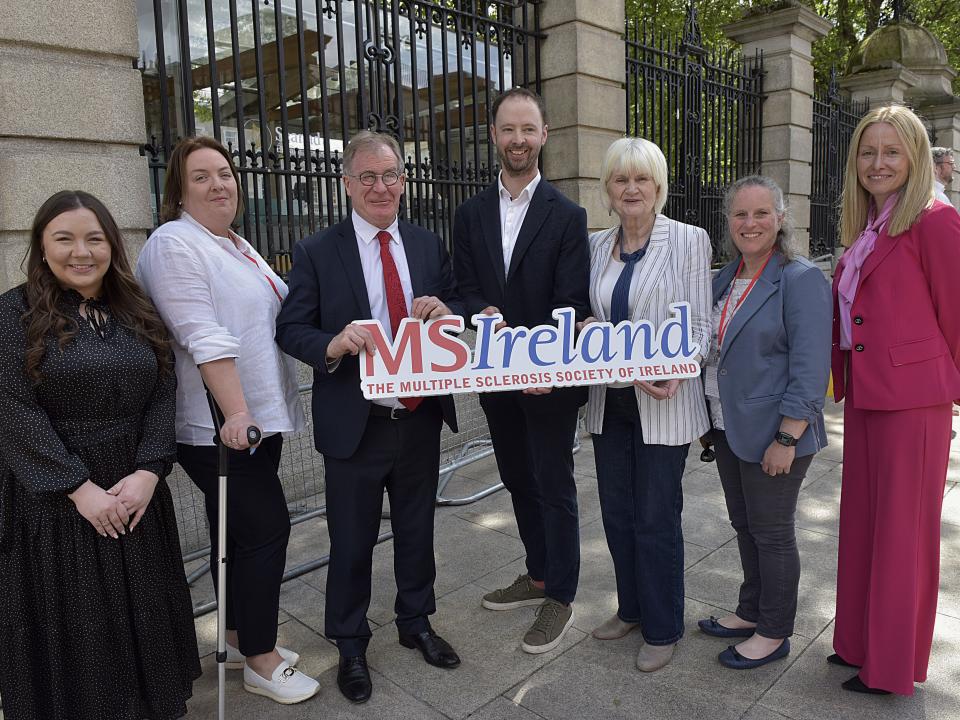
To establish a Community Worker Post in Sligo-Leitrim — the only region currently without this vital support.
This dedicated role would:
- Provide direct casework and advocacy to people living with MS
- Improve access to early intervention and holistic support
- Alleviate pressure on overstretched healthcare and social services
- Align with Sláintecare principles of integrated, community-based care
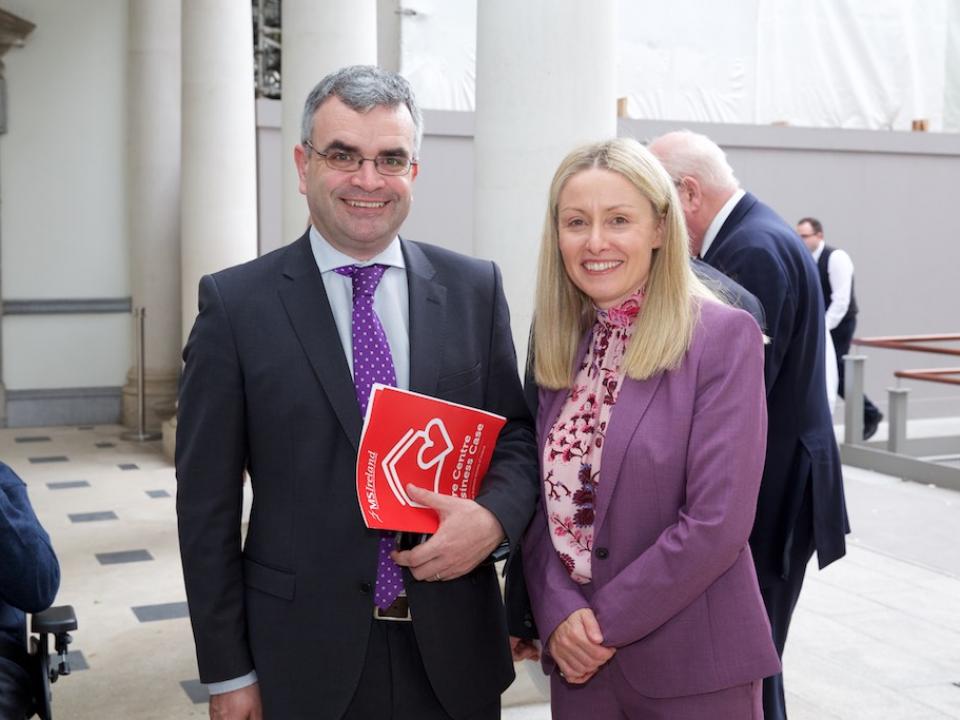
Findings from the 'My MS. My Needs' Survey
MS Ireland launched the results of the comprehensive "My MS. My Needs" survey at a briefing in the AV Room of Leinster House to Oireachtas members, all eager to deepen their understanding of the challenges faced by the over 10,000 individuals living with MS in Ireland.
The survey, which gathered responses from over 900 people with MS (PwMS), revealed significant insights into the diverse experiences and needs within our community:
- Impact on Daily Life: A striking 91% of respondents reported that MS affects their daily lives, with 31% indicating a substantial impact. This underscores the need for continuous support and tailored services.
- Healthcare Access: While access to treatments has improved since 2016, many PwMS still face challenges in accessing essential healthcare services, including neurology, physiotherapy, and psychological support. Notably, 24% of respondents expressed an unmet need for physiotherapy, and 31% highlighted the need for better psychological support.
- Employment and Financial Stability: The survey revealed that 28% of PwMS are unemployed, a significantly higher rate than the general population. Fatigue and other MS-related symptoms were commonly cited as reasons for changes in employment status. One-third have had to change their employment status due to MS-related issues. 48% are employed, with 29% working full-time.
- Financial Situation: 20% report struggling financially.
- Support Services: There is a notable need for enhanced support services, particularly for psychological support (31%) and physiotherapy (24%).
- Regional Disparities: The survey also highlighted regional disparities in access to services. PwMS living outside of Leinster face greater challenges in accessing healthcare and support services, emphasising the need for equitable service distribution across all regions.
Based on the survey findings, MS Ireland has developed ten key recommendations to improve support and services for the MS community:
- Enhance Accessibility of Services: Address regional variations in access to neurology services and reduce waiting times for appointments.
- Improve Information Dissemination: Develop comprehensive information packs about services, entitlements, and treatments.
- Support Medical Card Application Process: Advocate for a streamlined process considering the additional financial burdens imposed by MS.
- Review Housing Adaptation Support Systems: Ensure housing adaptation grants meet the needs of PwMS.
- Increase Support for Caregivers: Provide better support for caregivers, including access to paid home care and respite care.
- Expand Access to Psychological Support: Recognise the high prevalence of depression and anxiety among PwMS and promote access to emotional support services.
- Continue Efforts to Increase Physiotherapy Services: Build on the success of online physiotherapy services and support the rollout of community neurorehabilitation teams.
- Enhance Financial Support Accessibility: Address challenges in accessing financial supports to meet the needs of PwMS effectively.
- Advocate for Employment Support: Promote reasonable workplace accommodations and greater state support for employed PwMS.
- Continue Improving MS Ireland Services: Consider community feedback to enhance existing services and explore new avenues for support.
Challenges of MS: Respondents highlighted a range of symptoms and practical needs, with the most frequent challenges being fatigue, mobility issues and cognitive difficulties. Psychological and social impacts, such as mental health concerns and fears for the future were also significant.
MS Treatment: The survey found that 79% of respondents are currently on a Disease Modifying Treatment (DMT), a slight increase from 75% in 2016.
Care and Support Needs:
- Family Support: 52% receive support from family or friends, with a significant portion (35%) needing more than 31 hours of care per week.
- Financial Support for Caregivers: Only 22% of family caregivers receive a carer’s allowance, although this is an improvement from 12% in 2016.
Healthcare Engagement:
- Neurology Services: 83% attended a neurology clinic in the past year, with 19% waiting over six months for an appointment.
- Neurorehabilitation: A dramatic decline in service usage, with only 2% accessing neurorehabilitation compared to 25% in 2016.
MS Ireland’s Commitment: The findings underscore the urgent need for improved service provisions and greater awareness of available supports. MS Ireland remains dedicated to:
- Empowering the public with evidence-based insights.
- Highlighting areas for improvement in service provision.
- Showcasing our crucial role in advocacy and support planning.
MS respite Centre
Ask to increase annual statutory investment in The National MS Respite Centre by €627,000
MS Ireland is seeking €627,000 in additional funding to see the National MS Respite Centre, a 12 bedded unit which provides respite care to people living with Multiple Sclerosis and other progressive neurological conditions, expand its opening to 350 days per annum, providing an additional 1,248 bed nights annually.
At present, the National MS Respite Centre is only open for 40 weeks per year as a result of decreases in both statutory and fundraised income over the last number of years. The National MS Respite Centre plays a crucial role in ensuring family carers are supported and delivers a range of therapeutic services, neurological assessments and many social activities, all designed to prevent crisis and keep people living with neurological conditions well at home.
The National MS Respite Centre is HIQA accredited and fully equipped to meet the needs of people living with Multiple Sclerosis and offers a homely environment in which people living with Multiple Sclerosis can interact with each other, engage in activities, and be cared for in a comfortable and safe environment. MS Ireland believes that all people who require respite care in the National MS Respite Centre should have access to it.
In order to deliver this to our community members, additional annual statutory funding is essential. To restore the National MS Respite Centre to operating 350 days, providing an additional 1,248 bed nights per year, we require an increase in funding of €627,000 per annum.
This funding will provide high quality respite care, from experienced neurological nurses and healthcare staff. Increased respite availability will not only benefit those using our service and their families, but it also assists the HSE in alleviating pressure on an already inadequate number of respite beds.
Have Your Say! Please help MS Ireland to secure this funding and help open the service to even more people living with MS by contacting your local representative. We have a sample letter/mail which you can use to contact your local TD. We encourage you to personalise your letter and share any personal experiences which may support our request for Budget 2024.
You can find the names and contact details for your local TDs HERE. Simply click your constituency on the map and a list of all your local political representatives will come up.
Community neuro-rehabilitation teams
Community neuro-rehabilitation is a vital support for people living with neurological conditions, helping to support recovery and prevent disability. However, only 15% of people have access to community neuro-rehabilitation teams.
The vital importance of community rehabilitation teams is recognised by the health system. A team was promised for every CHO area but only two of the nine have been delivered. For people living with acquired conditions such as stroke and brain injury these teams allow them to leave hospitals more quickly to continue their recovery at home, reducing the need for longer term care while receiving necessary care close to where they live. For people living with progressive conditions such as Multiple Sclerosis, access to these teams can help prevent unnecessary disability and hospital readmissions.
Putting in place community neuro-rehabilitation teams makes sense. These teams reduce the average length of stay in hospital and could result in saving over 42,000 bed days each year. It also makes financial sense, for every €1 spend on these teams the health service saves €11.
Get involved: For further information on this campaign and how to get involved, please visit: www.patientsdeservebetter.ie
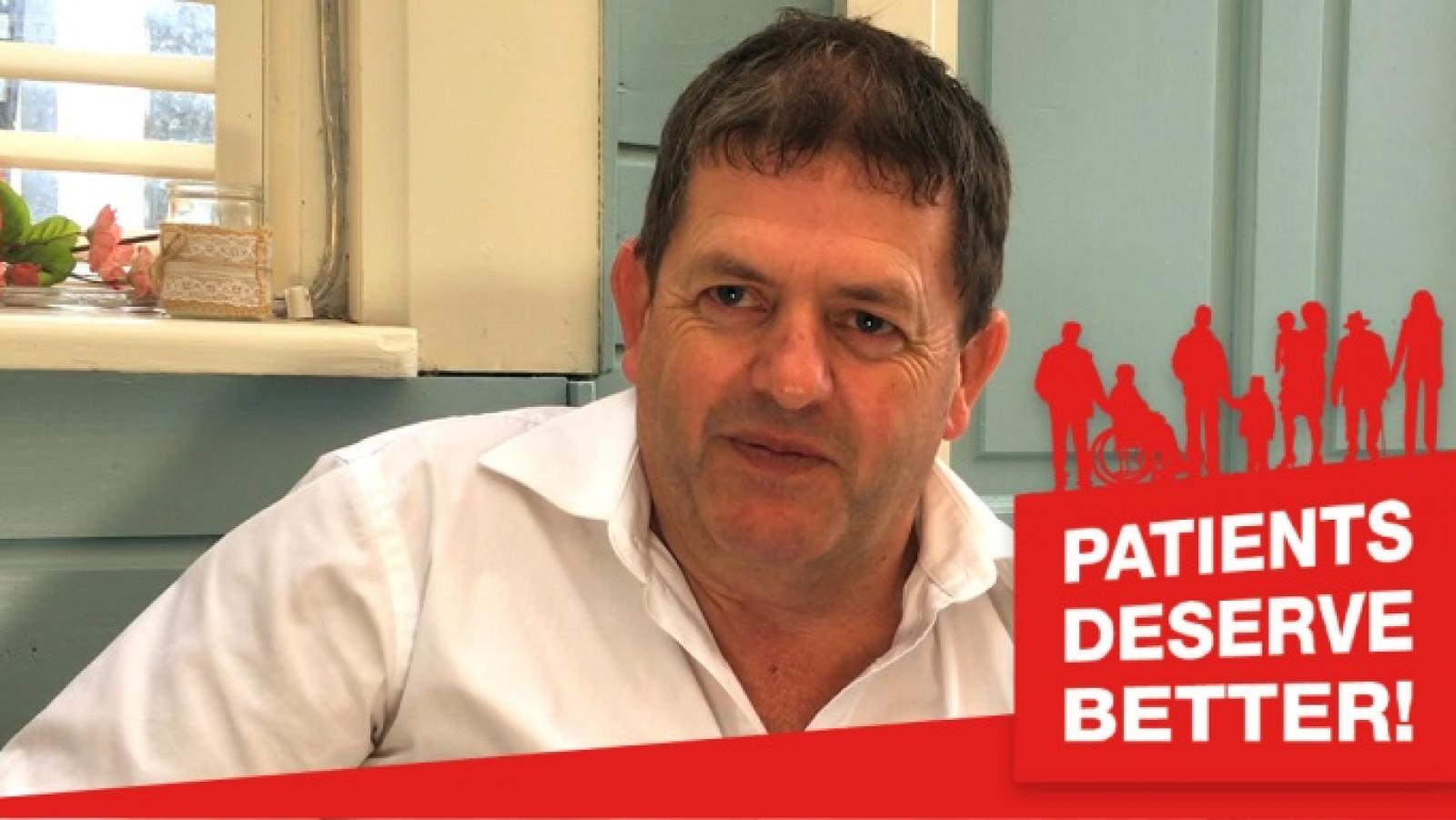

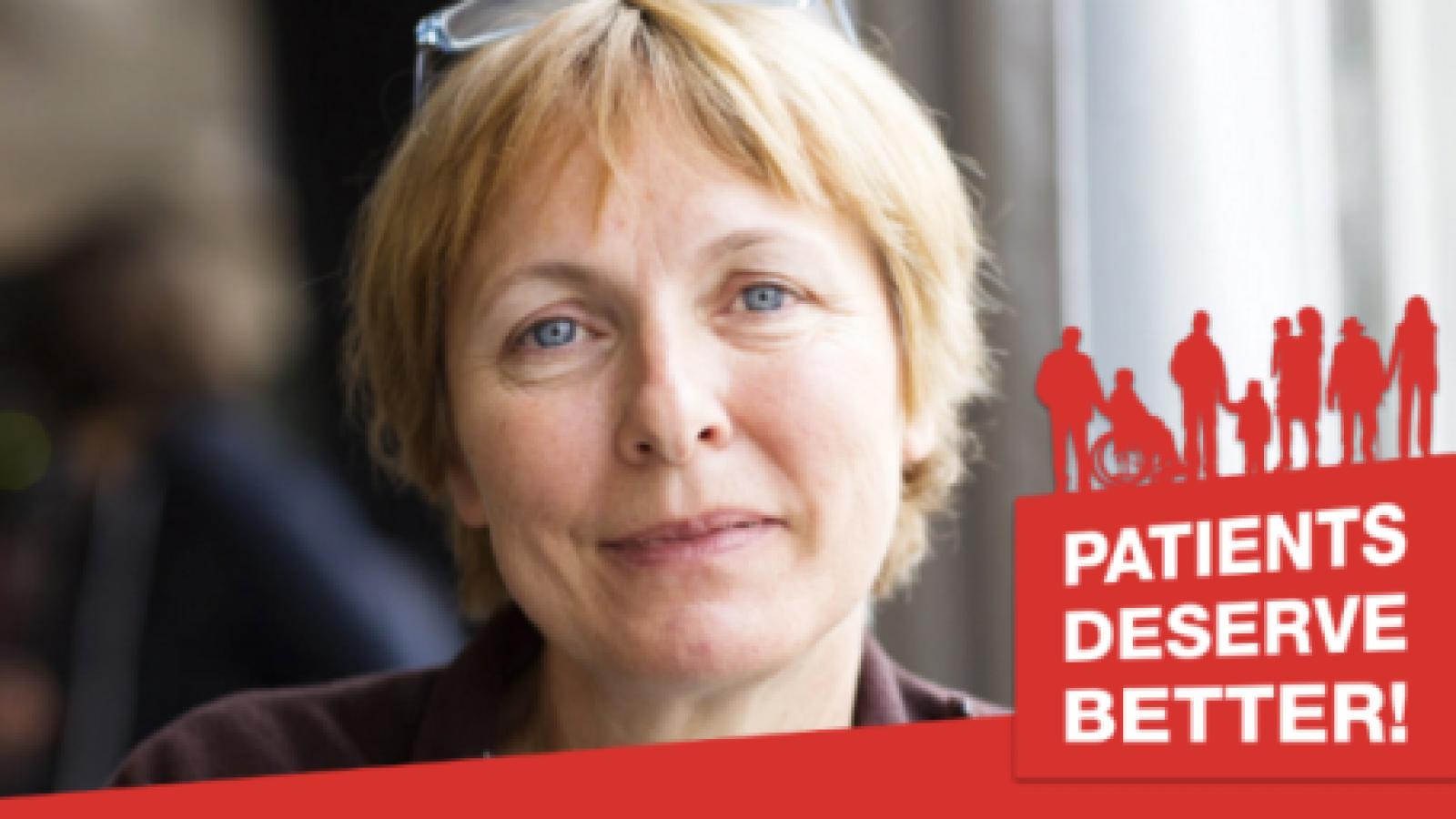
The viability of disability organisations
Services for disabled people are threatened by a crisis in the recruitment and retention of staff in Section 39 funded disability organisations. The primary cause is reduced statutory funding for Section 39 funded organisations, which causes a disparity in pay and conditions compared to their HSE and Section 38 counterparts.
This is an ongoing and increasingly urgent issue for disabled people and their families. In some cases, this situation threatens the viability of disability organisations.
Over two thirds of all disability services are delivered by the voluntary sector. Therefore, the recruitment and retention crisis in Section 39 disability organisations is having a catastrophic impact on essential services.
Government action is needed to bring this issue to resolution.
Get involved: For further information on this campaign and how to get involved, please visit: Take Action | Disability Federation of Ireland (disability-federation.ie)
GET IN TOUCH
Contact Alison Cotter by email: alisonc@ms-society.ie
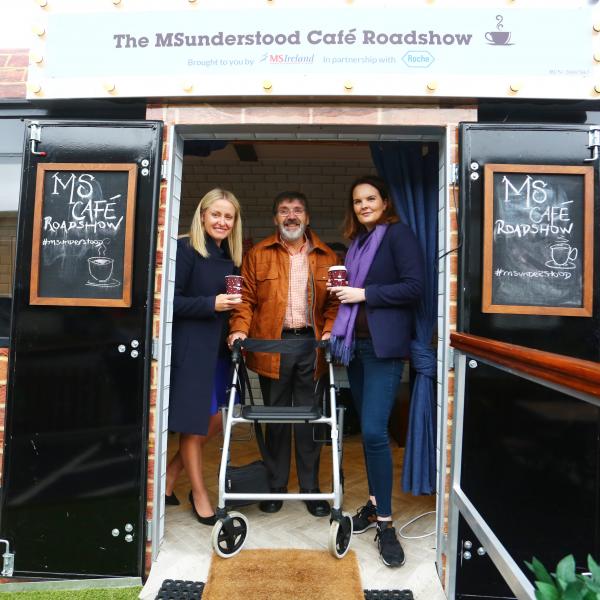
MSUnderstood Café
MS Ireland, in partnership with Roche, opened the MS Café and MS Café Roadshow as part of the patients deserve better campaign with the aim of improving access to medications for People with MS. You can learn all about the Café by clicking the link below

Election Manifesto
MS Ireland’s Your Vote Matters guide highlights the key issues facing the MS community in the upcoming general election. It provides questions to help voters engage with candidates on essential topics, like healthcare access and workplace inclusion.